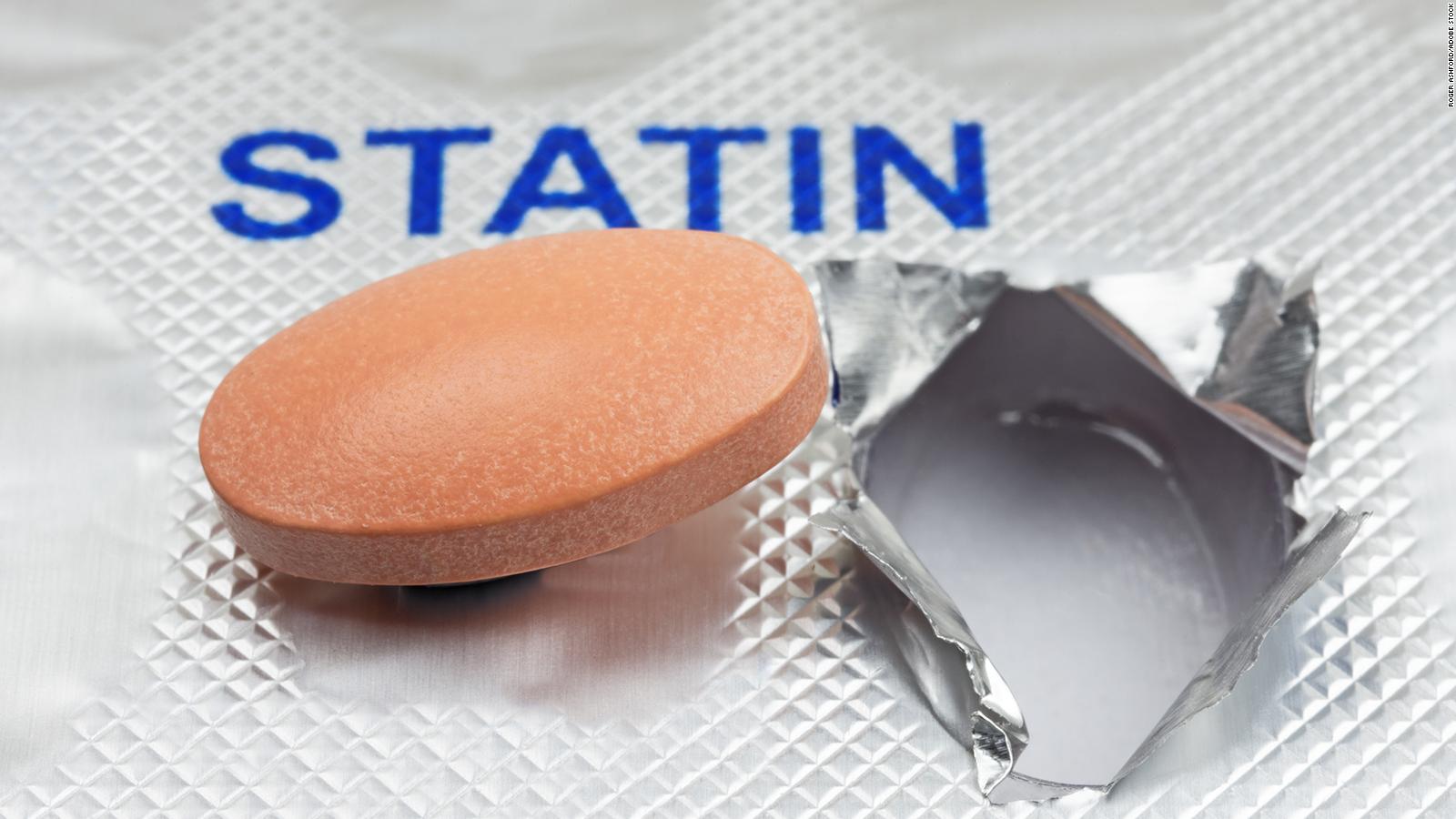This new artificial heart responds to patients 0:54
(CNN) --
Statins are a crucial tool for preventing major cardiovascular problems, but many patients stop taking them because of side effects, including muscle pain.
However, for more than 90% of patients taking statins who experience muscle pain, the statin is not the cause of the pain, according to a study published Monday in The Lancet and presented at the European Society of Cardiology Congress in Spain. .
Healthy People Shouldn't Take Daily Aspirin to Prevent Heart Disease, Study Says
"Our results confirm that, in most cases, statin therapy is not likely to be the cause of muscle pain in a person taking statin therapy," says the study, led by authors from Oxford Population Health and the Medical Research Council Population Health Research Unit at the University of Oxford.
"This finding is especially true if treatment has been well tolerated for a year or more before symptoms develop."
The authors performed a meta-analysis of 19 double-blind randomized trials of statin regimens versus placebo.
All trials had more than 1,000 participants and at least two years of follow-up.
They also examined four double-blind trials of more and less intense statin regimens.
Study author Colin Baigent, a professor of epidemiology at the University of Oxford, said there have been many nonrandomized studies that do not include any kind of placebo or random assignment to a statin that have produced "really very extreme" estimates of how much pain muscle cause by statins.
"This has caused patients not to start taking statins, or to stop taking statins when they develop muscle pain, because they just look at the newspaper and see that statins cause a lot of muscle pain and then they stop," Baigent said during a briefing from the Science Media Center.
"We were really trying to address that problem."
advertising
The new study states that "even during the first year of a moderate-intensity statin regimen, it is likely to be the cause in only one in 15 patients who report muscle symptoms, rising to about one in 10 in those who are taking a more intensive regimen.
"In other words, the statin is not the cause of muscle symptoms in more than 90% of individuals who report such symptoms."
The authors found that in the first year, statin treatment produced a 7% relative increase in muscle pain or weakness, but there was no significant increase thereafter.
The increased risk was already present in the first three months after treatment allocation.
Do you want to reduce your risk of premature death?
3 activities are the most beneficial, according to a study
At least one episode of muscle pain or weakness was reported in 27.1% of patients assigned to a statin versus 26.6% of those assigned to placebo during a median of 4.3 years of follow-up.
In the trials analyzed by the authors, they say that statin treatment, during the first year of use, caused approximately 11 additional reports of muscle pain per 1,000 patients.
"What we concluded is that there are two things that we have to do as a profession, as a society," Baigent said at the briefing.
"The first is that we need to improve the treatment of patients who report muscle pain when taking a statin, because there is a tendency for patients to end up coming off the statin and that has a detrimental effect on their long-term health. The second thing we need to do is look at the information that's available to patients in the package inserts."
Baigent noted that if people were better informed about the real risks of muscle pain, they might be able to stay on statin therapy for longer.
The study has some limitations, including considerable heterogeneity in the methods used for muscle symptoms, lack of data on adverse effects, and the fact that most studies did not exclude participants who may now be considered to be intolerant to the statins.
In a commentary published alongside the study, Dr. Maciej Banach, a cardiologist at the Medical University of Lodz and the Polish Mother Memorial Hospital Research Institute in Poland, wrote that the possible side effects of statins should not be a consideration when starting treatment.
"It must be stressed that the small risk of muscle symptoms is negligible compared to the well-proven cardiovascular benefits of statins," he wrote.
The US Centers for Disease Control and Prevention (CDC) says that heart disease is the leading cause of death for men, women, and most racial and ethnic groups in the United States. USA.
There is one death from cardiovascular disease every 34 seconds in the country.
Last week, the US Preventive Services Task Force announced its latest guidance on the use of statins to prevent a first heart attack or stroke.
The guidelines are more conservative than those published by other groups, such as the American College of Cardiology.
They recommend the use of statins in adults aged 40 to 75 years who have at least one risk factor for cardiovascular disease and a 10% or higher risk of having a heart attack in the next 10 years.
According to the American Heart Association, "Statins are recommended for most patients and have been directly associated with reduced risk of heart attack and stroke. Statins remain the most effective lipid-lowering treatment in most patients." cases".
-- CNN's Jen Christensen contributed to this report.
Cardiovascular diseasesStatins

